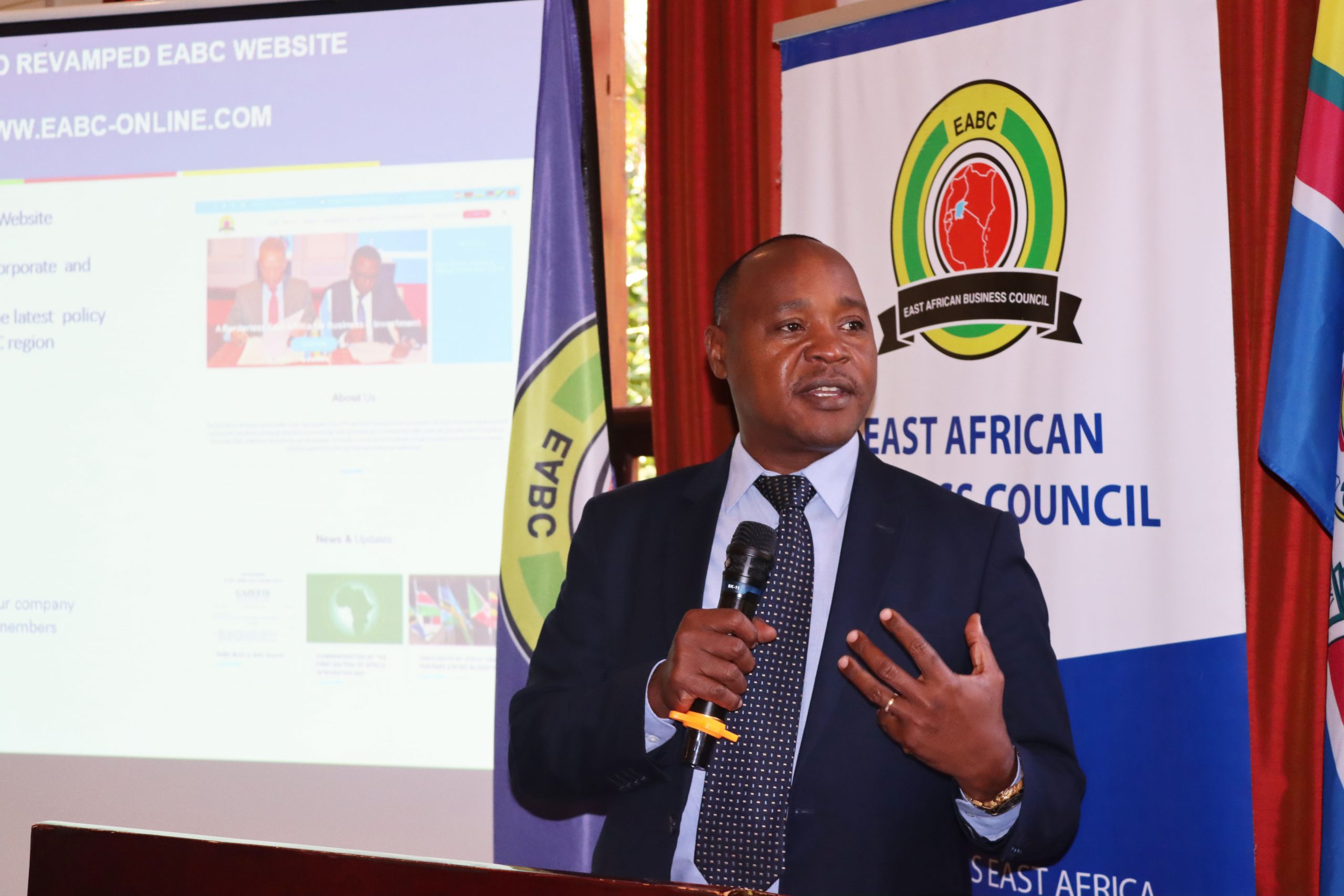The East African Business Council (EABC) is pushing for a bilateral meeting to eliminate all remaining non-tariff barriers between Kenya and Uganda so as to further accelerate post-COVID economic recovery and foster integration across the wider region.
According to this apex body that represents interests of investors and businesses in the region, a quick convening of a bilateral public private dialogue meeting between the East African Community (EAC) member states will seek to find a win-win lasting solution on the ongoing stalemate to boost economic growth and trade which will in turn create jobs for the success and prosperity of the region.
In a press statement, EABC has urged Kenya and Uganda to hold a serious bilateral dialogue and avoid at all costs a trade stalemate due to the imposition of hefty non-tariff barriers.
EABC has previously highlighted that intra -East African trade was approximately 15% noting that this is a somewhat low figure partly attributed to persistent denials of preferential market access to EAC originating products and the proposed new trade protection measures will likely reduce trade volumes and values immensely.
According to EABC, Kenya has been subjecting sugar imports from Uganda to limited permits. However, through numerous bilateral meetings between the two nations, an agreement was reached that Uganda would export 90,000 metric tonnes. Unfortunately, this has not been the case since between January and October of 2021 only 37000 metric tonnes were exported instead of 65000 metric tonnes.
In addition to this stalemate, some Ugandan dairy products are still being blocked from freely accessing the Kenyan market. This is happening because the number of import permits issued by Kenya Dairy Board in 2020 and 2021 have immeasurably declined by between 8-10% of the number of permits issued in 2019.
EABC has further challenged EAC partner states to ratify Article 24(2) of the EAC Customs Union protocol to pave way for the operationalization of the EAC Trade Remedies Committee. Article 24 of EAC Customs Union is mandated to handle matters rules of origin, antidumping measures, subsidies, countervailing and safeguarding measures as well as dispute settlement mechanisms.
The regional council has urged EAC partner states to eliminate all sorts of trade barriers imposed on goods produced within the trading blocs as these non-tariff barriers hinder free movement of goods enshrined in the EAC customs union and common markets protocols.
Long lists of documentation requirements, cumbersome customs formalities, unharmonized standards requirements, arbitrary use of Rules of Origin requirements, many weighbridges, several roadblocks, burdensome testing, and certification requirements are some of the significant non-tariff barriers EAC continues to face.
These trade barriers have persisted over the years thereby raising transaction time which in turn culminates to increase in the cost of doing business across borders. In addition to these challenges, the competitiveness of products coming from EAC is reduced at a great percentage.
EABC’s observations come at a time when regional heads of state are set to sit for the 18th extraordinary summit virtually tomorrow.

